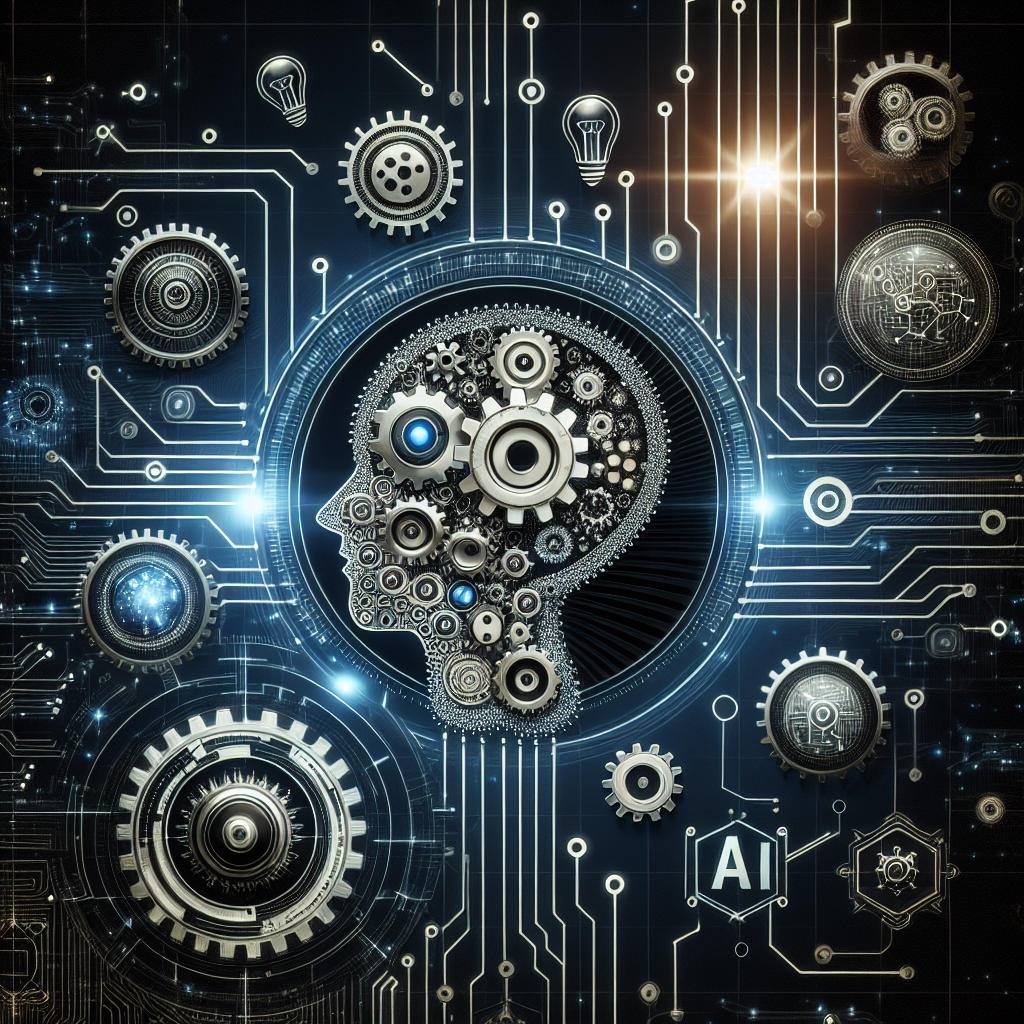The Future of AI Development: Trends and Challenges
Artificial Intelligence (AI) has been a rapidly evolving field in recent years, with advancements in machine learning, deep learning, and natural language processing. These technologies have the potential to revolutionize industries, improve efficiency, and enhance the way we live and work. As AI continues to develop, there are several key trends and challenges that will shape its future.
Trends in AI Development:
1. Continued Growth of Deep Learning: Deep learning, a subset of machine learning that uses neural networks to mimic the human brain, has been a driving force behind recent AI advancements. As computing power and data availability continue to increase, deep learning models will become more sophisticated and capable of handling complex tasks.
2. Expansion of AI Applications: AI is being applied across a wide range of industries, from healthcare and finance to transportation and marketing. As AI technologies become more accessible and affordable, we can expect to see a proliferation of new applications and solutions that improve efficiency and drive innovation.
3. Enhanced Natural Language Processing: Natural language processing (NLP) is a key area of AI research that focuses on enabling computers to understand and generate human language. Advances in NLP have already led to the development of virtual assistants like Siri and Alexa, and we can expect to see further improvements in this area as AI technologies continue to evolve.
4. Increased Focus on Ethical AI: As AI becomes more integrated into our daily lives, there is growing concern about its ethical implications. Issues such as bias in AI algorithms, data privacy, and the impact of automation on jobs will need to be addressed as AI development progresses.
5. Edge Computing for AI: Edge computing, which involves processing data closer to the source rather than in a centralized data center, is becoming increasingly important for AI applications. By bringing AI capabilities to the edge, devices like smartphones and IoT sensors can perform tasks more efficiently and with lower latency.
Challenges in AI Development:
1. Data Quality and Bias: AI models rely on large amounts of data to learn and make predictions. However, if the data is biased or of poor quality, the AI system may produce inaccurate or unfair results. Addressing data quality and bias is a key challenge in AI development that requires careful data collection and preprocessing techniques.
2. Explainability and Transparency: AI models are often seen as black boxes, making it difficult to understand how they arrive at their decisions. Increasing the explainability and transparency of AI systems is crucial for building trust and ensuring that AI is used responsibly.
3. Scalability and Robustness: As AI models become more complex and computationally intensive, scalability and robustness become major challenges. Ensuring that AI systems can perform reliably in real-world settings and handle large volumes of data is essential for their success.
4. Regulatory and Legal Issues: The rapid pace of AI development has outpaced regulations, leading to uncertainty about how AI technologies should be governed. Addressing regulatory and legal challenges, such as data privacy laws and liability for AI decisions, will be crucial for ensuring that AI is used ethically and responsibly.
5. Talent Shortage: The demand for AI talent is outpacing the supply, leading to a shortage of skilled professionals in the field. Training the next generation of AI experts and fostering diversity in the AI workforce will be essential for driving further innovation in AI development.
FAQs:
Q: What are some examples of AI applications in different industries?
A: AI is being used in a variety of industries, including healthcare (diagnosis and treatment planning), finance (fraud detection and algorithmic trading), transportation (autonomous vehicles), marketing (personalized recommendations), and agriculture (crop monitoring and yield prediction).
Q: How can businesses leverage AI to improve efficiency and drive innovation?
A: Businesses can leverage AI to automate repetitive tasks, analyze large datasets for insights, personalize customer experiences, and optimize operations. By integrating AI technologies into their processes, businesses can improve efficiency, reduce costs, and stay competitive in the market.
Q: What are some ethical considerations in AI development?
A: Ethical considerations in AI development include ensuring fairness and transparency in AI algorithms, addressing bias in data and decision-making, protecting user privacy, and considering the social impact of AI technologies. It is important for AI developers to prioritize ethical guidelines and consider the broader implications of their work.
Q: How can individuals prepare for the future of AI development?
A: Individuals can prepare for the future of AI development by staying informed about the latest trends and advancements in AI, acquiring relevant skills in machine learning and data science, and being mindful of the ethical implications of AI technologies. Continuous learning and adaptability will be key for navigating the evolving landscape of AI development.
In conclusion, the future of AI development holds great promise for driving innovation and transforming industries. By leveraging key trends such as deep learning, expanding AI applications, and enhancing ethical considerations, we can harness the power of AI to create a more efficient and sustainable future. However, addressing challenges such as data quality, explainability, and talent shortage will be crucial for ensuring that AI technologies are developed responsibly and ethically. With careful consideration and collaboration, AI has the potential to revolutionize the way we live and work in the years to come.

